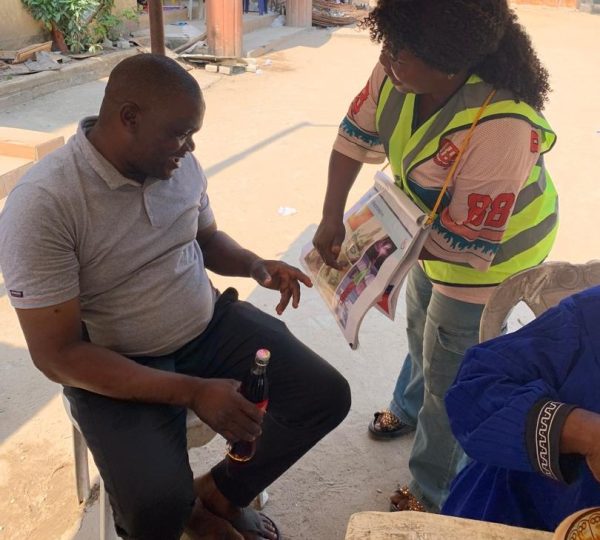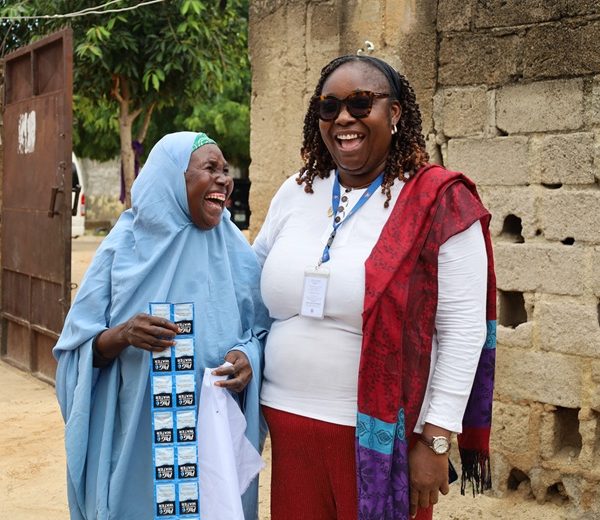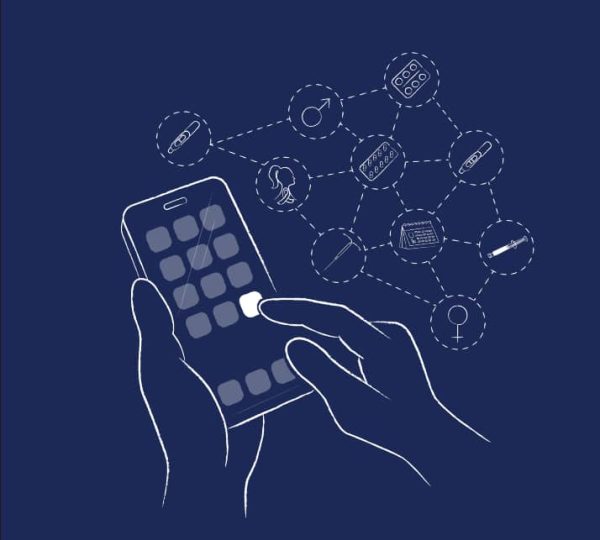Unlocking the Power of the Private Sector to Build Resilient and Equitable Health Systems for HIV Programming
By Yusuf Hassan Wada, Dennis Aizobu, Boluwatife Adesina, Delafrida Ukaga, Oshioke Jesse Abu
In recent years, HIV self-testing (HIVST) has garnered interest in the HIV testing space as a last mile solution to achieve the UNAIDS’ 95–95–95 goals by 2030. In many African countries, evolving guidelines have favored the use of HIVST, with discussions shifted towards an integration of HIVST as a strategy for entry to the HIV care continuum.
All around the world the private sector influence health through the sale of health-promoting commodities, as well as marketing activities for the their growth. Digital health technology has also gained traction in many African countries to help drive the private sector, and telemedicine has allowed continuity of care for many users of services including HIVST.
As globalization further strengthens the role of the private sector as a major driver of seeking equitable health, engaging with the private sector to prevent and control disease has become increasingly important. In recognition of this fact, Society for Family Health (SFH) through the Strengthening HIV Self-testing in the Private Sector (SHIPS) project conducted a market research and used Human Centered Design (HCD) to identify key challenges to private sector HIVST scaleup, designed, developed and field-tested solutions to address the barriers. Further, these solutions identified were piloted in the project’s pilot implementation stage strategy geared towards building a self-care insight delivery campaign using digital health.
But what will it take to successfully engage the private sector to strengthen HIVST and build a more resilient health system? Five key takeaways emerged from our project:
- Leveraging the Power of Digital Health: HIVST with digital supports is the use of digital interventions (e.g., website-based, social media, mobile HIVST applications (apps), text messaging (SMS), digital vending machines (digital VMs)) to improve the efficiency and impact of HIVST. With upfront implementation costs and lower recurring fees downstream, digital health innovations have expanded the ability to reach diverse audiences with the potential for widespread scale-up, increased access to testing, and efficient linkage to health services. Interest in digital tools such as social media to support HIVST has grown over the years and have increased the growth of Nigeria’s private sector market for HIVST with an achievement of over 1.4 million persons reaches over 12 months. MyPaddi is an example of an e-commerce platform where we promoted ease of purchase, continence, and confidentiality for HIVST Kits. Digitally supported HIVST innovations offered an important opportunity to reduce stigma and confidentiality concern, and also increase demand and awareness among hard-to-reach populations.
- Shaping Community Mobilization Efforts: Shaping community-based efforts for the private sector create environments characterized by autonomy as local actors decide how they will address challenges when they arise, social acceptance as behavior changes is made collectively, services linkages and increased understanding and awareness of an unfamiliar situation. Through the SHIPS project community mobilization, efforts have helped to offer wide reach for the target population and create awareness about HIVST, referral linkages, and the right information and messaging using IEC materials (fliers and IPC guide). Through this project, SFH is helping improve the quality of HIVST services within the community access channels and serving low-income populations, including women and children.
- Community Activations: Tailored to local context, the community activation process provided a key lesson in driving awareness, encouraging people to utilize digital services (WhatsApp Chatbot, Toll-free line), and encourage unassisted HIVST among community population. Structured around the community action cycle (CAC), where local communities identify, prioritize, and act to solve health and social problems in collaboration with external facilitators (promoters, mobilizers, engagers) on the need to use self-kits and encourage individuals to buy. Programmatic outputs from communities after activation include the increased awareness on the WhatsApp chatbot and call centre toll free line for next step guidance, amplifying community mobilization reached wider audiences, post-activation sales increased significantly thereby facilitate awareness between shops and community.
- Building Stronger Health Systems using the Private PHCs: Physical Pharmacies and PPMV stores are a major source of healthcare for majority of Nigerians. Through the SHIPS project, online and physical pharmacy capacity were built to improve access and increase uptake of HIVST kit among target segment, with most pharmacies having a recurrent stock of the test kits, provided more confidence in delivering HIVST services, post-test support and linking the providers to distributors in minimizing stock out and willingness to stock more. Data also showed that there was a significant increase in demand through an innovative Conceptual Bundling Concept where other self-care SRH products were added.
- Bringing global private sector expertise locally enables the co-design of solutions to country health challenges: The private sector is not just a source of financing but has valuable expertise to offer to promote comprehensive strategy, building partnership and trust with the public sector. In partnership with NACA, NASCP, NAFDAC, PSN, MLSCN and PCN, SFH brings regulator’s, government, corporate private sector, professional organizations and partners with expertise in logistic and supply-chain management to address challenges and provide solutions toward quality access to HIVST in Nigeria.
When done right, strategic public-private collaboration can help countries to protect essential health services including HIV as part of continuity of care for many users of services and to build more resilient and equitable health systems.




